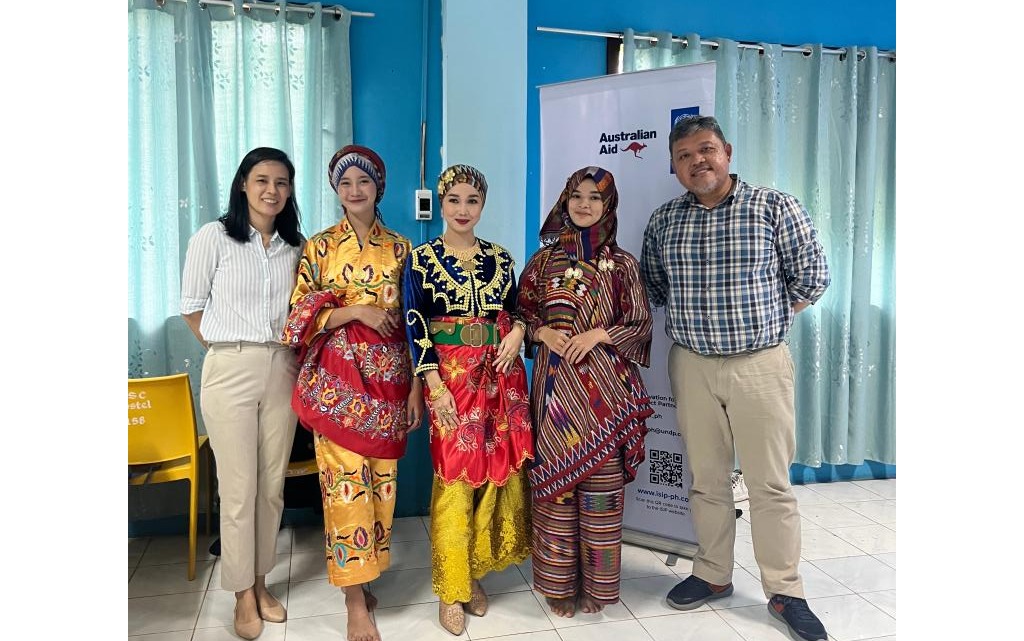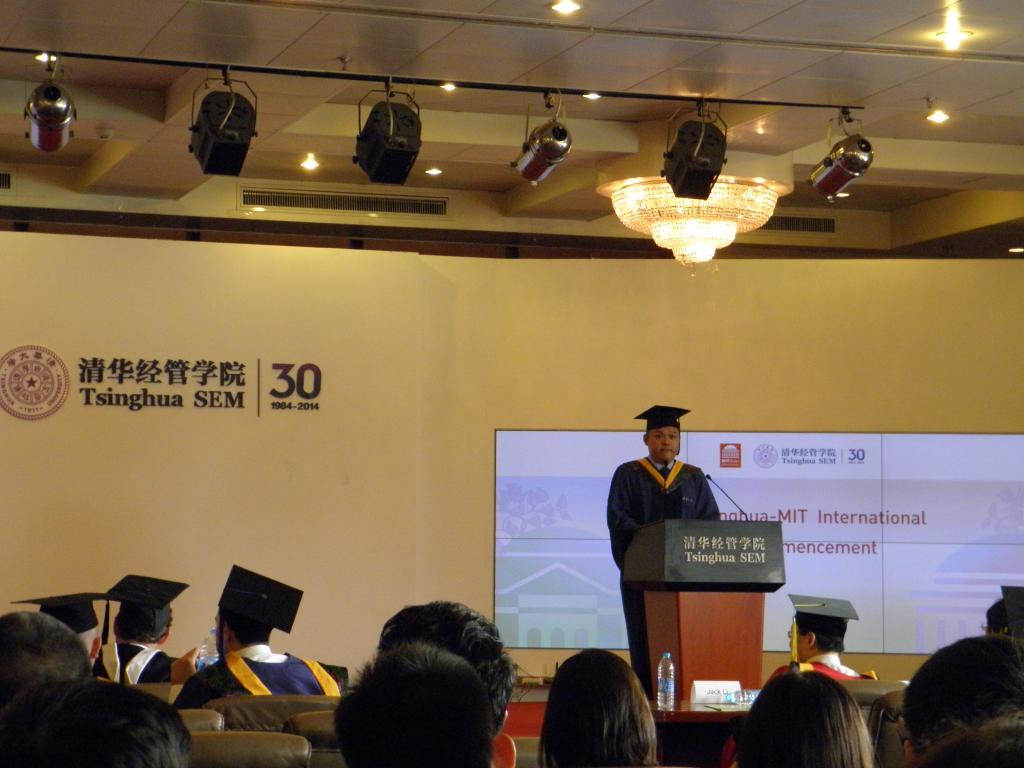
Russ (pictured far right) has used his Tsinghua Global MBA to pursue social entrepreneurship
Russ Neu Wee Teck used his MBA in China at Tsinghua University School of Economics and Management (Tsinghua SEM) to work his network.
From meeting the CEO of Apple, Tim Cook, to rubbing shoulders with top Chinese business leaders—he’s leveraged his network to initiate opportunities to launch his social enterprise.
As the CEO of a social enterprise, everything he’s done in his career has been targeted toward helping to improve the lives of disadvantaged individuals.
Learning that experience shapes action
Russ began his career as a teacher at a high school in his native Singapore. A job he loved, but one that would be the catalyst for his drive to tackle social inequalities.
As a teacher, he unfortunately witnessed the impact that poverty had on some of his students from low-income backgrounds. Never the type of person to sit back and let such events unfold, Russ went on home visits to these families to try and get to the root of the issue.
“I experienced a situation where a student had not attended school for many days and when I visited the family home, I found that she had a single mother with five children, so the money was tight,” he says.
This was when Russ knew his calling: he wanted to use his career to help those in need. Turning to business school for guidance, he joined the Tsinghua Global MBA in Beijing, which offers courses focused on social entrepreneurship.
Russ was fortunate enough to receive an MBA scholarship from the Korea Development Bank to complete his studies at Tsinghua SEM.

Russ during his valedictorian speech at Tsinghua SEM
Using an MBA for Social Impact
Russ was able to customize his MBA experience to what he was passionate about. For example, he was the leader of the Net Impact club at Tsinghua SEM. This volunteer-led organization drives change by creating a like-minded community whose members aim to use business as a force for environmental and social impact.
After attending a talk at Tsinghua University about the AIDS epidemic in the middle part of China—spread by illegal blood donation services—he wanted to do everything in his power to help.
The talk was provided by the founder of the NGO, The Chi Heng Foundation (CHF), which provides educational opportunities for children impacted by AIDS and HIV.
“I was shocked by the scale of the impact. The founder mentioned that the charity has struggled during the financial crisis, which made me think: what if there was a business angle to this charity?”
Russ shadowed the founder in the impacted villages, where he took part in a business consultancy project as part of his MBA thesis. He interviewed beneficiaries and spent eight days in the village to gain a holistic understanding of the issues.
“The villages didn’t have enough resources to help themselves out of poverty,” he says.
This is when he came upon the idea of teaching the villagers the skills, such as social media management, to sell their produce.
MBA networking to the top
Russ admits that his main learnings from the Tsinghua Global MBA came from the people he met.
He has continued a close association with the school, becoming a teaching assistant for an ethics class taught by Professor Qian Xiaojun, a highly regarded and influential professor at Tsinghua.
He gladly accessed many opportunities via his business school professors, such as getting to interview the CEO of PepsiCo China. He also encountered Apple CEO Tim Cook, a board member at Tsinghua SEM.
However, it was meeting Mike McNamara, the then CEO of Flextronics—one of the world’s largest electronics manufacturers—that ultimately sealed the course of his career.
Russ was invited to send over his resume for a role at Flextronics.
His position at Flextronics involved driving the company's diversity and inclusion strategy across Asia.
“I used this opportunity to push forward, and manage relations, which involved stepping on some toes to push for DEI efforts,” he says.
He used his learnings about corporate social responsibility (CSR), gained during his talks with PepsiCo’s CEO and his Tsinghua classes, to guide his company to consider diversity as a profit-increasing strategy.
The Chinese government encourages the employment of the disabled community. A company will be eligible for tax benefits if a certain percentage of its employees are from this specific community.
With knowledge of this policy—plus his innovative mindset and determination—Russ managed to increase the number of disabled employees at Flextronics from five to 350 in Zhuhai, China.
Becoming a socially responsible CEO
With his business learnings and social endeavors firmly in mind, after leaving his role at Flextronics Russ was contacted by a government agency in Singapore. He was asked to investigate the social impact space in the country and submit a proposal.
The opportunity fed into his passion for social responsibility and his commitment to conducting business for the greater good.
It led to him devising his startup, Social Collider, an aggregator of resources for social enterprises and charities in Singapore.
“The skills, knowledge, passion, purpose, and belief were central for me following the Tsinghua Global MBA, and these learnings accumulated in Social Collider,” he says.
Russ' organization is a co-working and co-innovation community, with a mission of supporting social enterprises in Singapore. It was born out of the social impact lessons he learned as a student and in his early working life.
For Russ, being a socially responsible business leader also means being an inveterate mentor—frequently advising fledgling enterprises on fundraising and integrating business practices with social and environmental impact.
When asked about his advice for budding social entrepreneurs like himself, he stresses two important things. One, you must have a clear purpose for what you want to support. Two, focus on your strengths—don’t merely chase trends.
“Most importantly, reach out to your network. You never know who could help you along the way,” he concludes.
By Shannon Cook